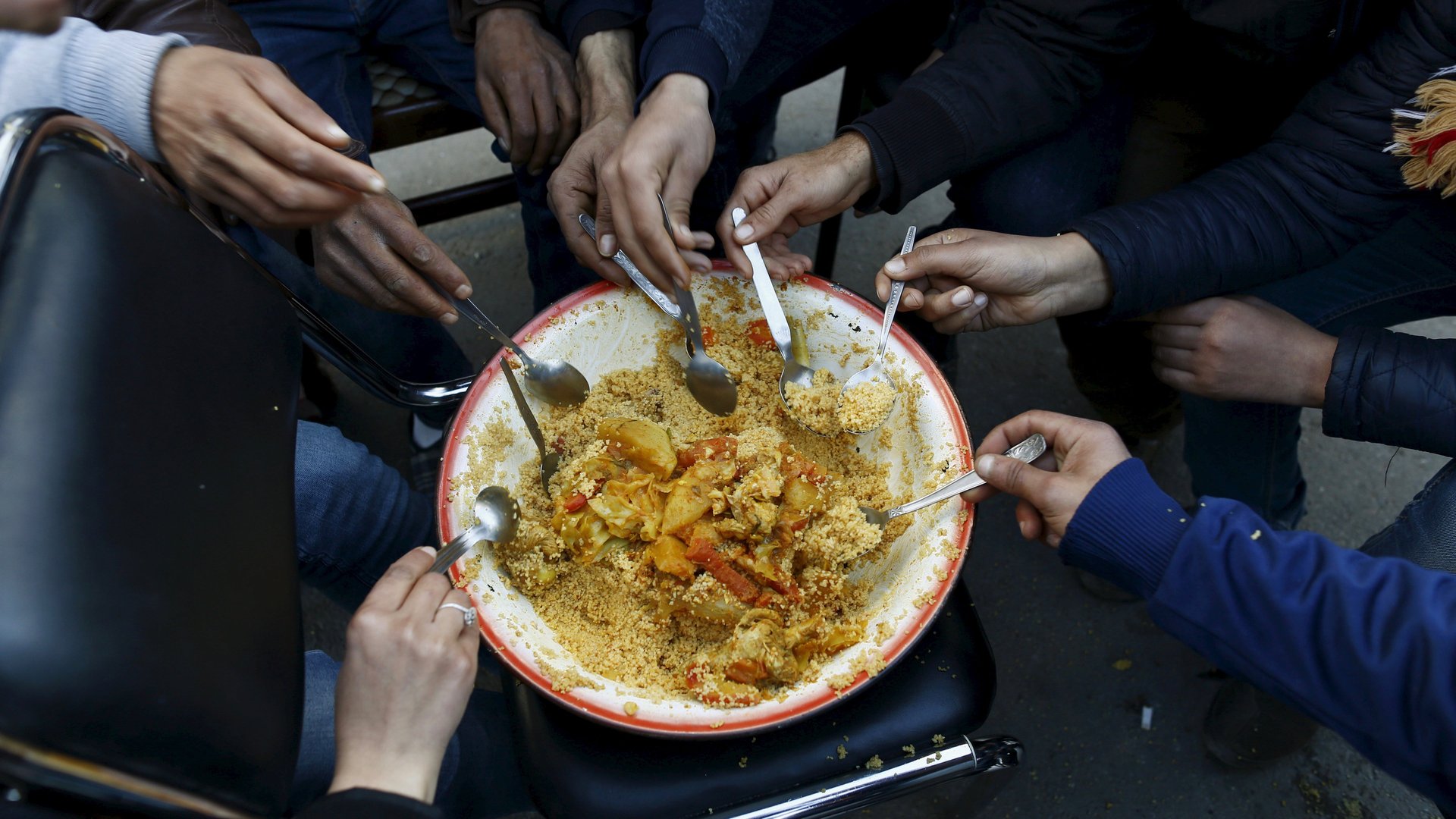North Africans hope giving couscous world heritage status will bring them together
After years of diplomatic standoffs over terrorism, resources and territory, North African nations hope one dish can finally bring to the same table: couscous.


After years of diplomatic standoffs over terrorism, resources and territory, North African nations hope one dish can finally bring to the same table: couscous.
A group of experts from the Maghreb region have come together to work on a common campaign to have couscous recognized by Unesco’s list of intangible cultural heritage. The small balls of rolled and crushed wheat or cereals is usually steamed and is the staple for many in North Africa, and a readymade version can be found in most grocery stores around the world.
Researchers hope the dish’s “transculturality” will lead to a closer cultural bond between Algeria, Morocco, Tunisia and Libya, according to reports. Researchers have found utensils used for making couscous in the tomb of the third century Berber ruler King Massinissa, who united what is today Algeria, Libya and Tunisia.
The history of couscous is already disputed. Many believe it was first made by the Berber or Amazigh communities as early as the seventh century, who lived and moved across North Africa before Arab migration into the region. Records of couscous prepared and sold have also been found in West Africa and was also eaten by the Moors in Spain. There are also ancient poems found the Levant that mention couscous and in the Middle East today, a version of couscous is known as “mughrabiyya.”
Recognition from Unesco “a way to strengthen the strong links between peoples [in the Maghreb], in a way that enables them to respond to the same traditions with the same culinary expressions,” said Ouiza Gallèze, a researcher with Algerian National Centre of Research in Social and Cultural Anthropology.
Last year, Unesco recognized the “art of Neapolition ‘pizzaiuolo’” as an intangible cultural heritage. Naples’ pizza makers wanted the dough-twirling and baking in a wood-fired oven recognized as a unique cultural practice, in part to protect one of the world’s favorite dishes against the kind of appropriation that regards pineapple as a pizza topping.
Encouraged by the pizza’s new status, French president Emmanuel Macron has joined the call for similar recognition for the baguette to “preserve its excellence and our expertise,” he said earlier in January. Unesco’s list already includes a wide range of cultural intangibles like Botswana’s dikopelo folk music and Konjic woodcarving techniques from Bosnia and Herzegovina.
A steaming bowl of couscous is unlikely to solve all the divisions in a sometimes volatile region, but a shared cultural identity could go some way toward diplomacy. But, if campaign for heritage status turns out anything like Algeria and Morocco’s current feud over the folk music genre rai, couscous won’t be enough.